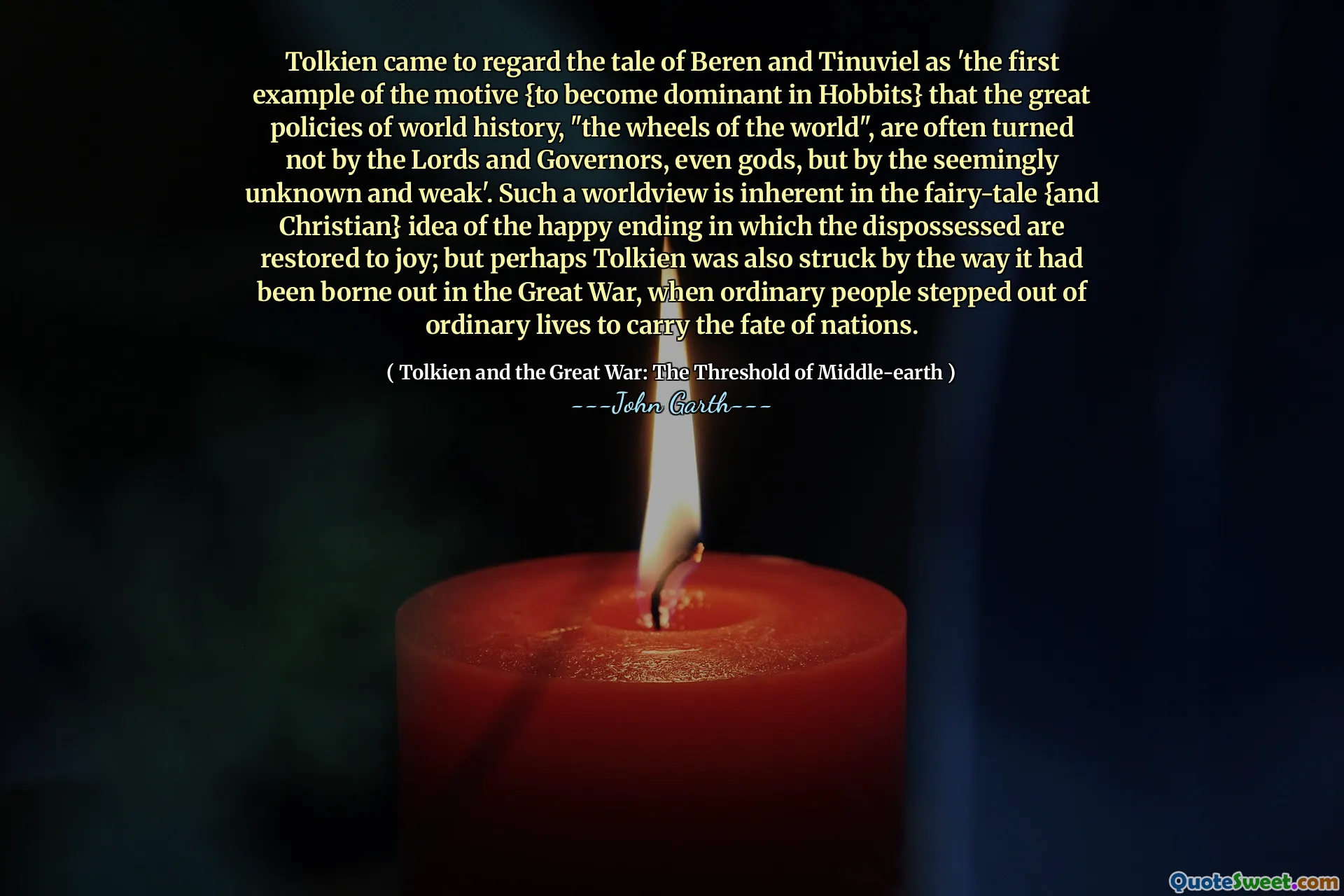
Tolkien came to regard the tale of Beren and Tinuviel as 'the first example of the motive {to become dominant in Hobbits} that the great policies of world history, "the wheels of the world", are often turned not by the Lords and Governors, even gods, but by the seemingly unknown and weak'. Such a worldview is inherent in the fairy-tale {and Christian} idea of the happy ending in which the dispossessed are restored to joy; but perhaps Tolkien was also struck by the way it had been borne out in the Great War, when ordinary people stepped out of ordinary lives to carry the fate of nations.
Tolkien viewed the story of Beren and Tinuviel as a prototype for a recurring theme in his work, particularly in the context of Hobbits. He believed that significant changes in history often arise from the actions of the seemingly insignificant and powerless, rather than from the powerful or divine rulers. This perspective reflects a deeper fairy tale and Christian belief in happy endings, where the oppressed regain their joy and rightful place.
This idea was particularly resonant for Tolkien, especially after witnessing the Great War, where ordinary individuals played pivotal roles in shaping global events. Such experiences may have influenced his belief that even those who seem weak can profoundly impact the course of history, reinforcing the notion that heroism is often found in the most humble of characters.







